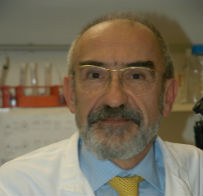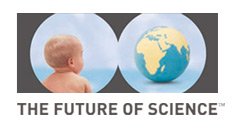Carlo Alberto Redi

Carlo Alberto Redi is currently the head of the Developmental Biology section at the Department of Animal Biology and Biotechnology “Lazzaro Spallanzani” and a member of the “Research Center of Regenerative Medicine” of the Fondazione IRCCS Policlinico San Matteo.
Member of the ethics committee of the “Fondazione Umberto Veronesi” and vice-Director of the European Center for Law, Science and New Technologies, University of Pavia (Italy).
A chemist by training (1968) he graduated in Biology (1972) at the University of Pavia where he progressed as full Professor of Zoology and Developmental Biology (1990).
Co-organizer of the 13th International Chromosome Conference (1998).
He was awarded the 1998 National Prize for Biological Sciences of the President of the Italian Republic. Member of the Dulbecco’s Commission for the study of the therapeutical use of stem cells (2000).
Managing editor of the European Journal of Hystochemistry since 1990.
Member of the Editorial Board of the “International Journal of Developmental Biology”.
Honorary member of the Sociedad Genetica de Chile (2000) and Member of the Accademia Nazionale dei Lincei (Italian National Academy of Sciences; 2003).
Scientific head (16 July 2006 – 15 July 2010) of the Fondazione IRCCS Policlinico San Matteo Hospital – Pavia (Italy).
His field of research is the DNA cytochemistry of male and female germ cells in Mammals.
His main actual area of interest is the development of an artificial cytoplast to genetically reprogramme somatic cell karyons to pluripotency.
His career is marked by more than 120 peer reviewed publications in distinguished journals and books.
Nuclear transfer: genetic reprogramming and cloning
The “fantastic experiment” of the Nobel Laureate Hans Spemann paved the way for the nuclear transfer technology, essential for the advancements of the basic scientific knowledge on cellular function.
The transfer of a nucleus in a different cytoplasmic environment provides new interactions able to reshuffle the epigenetic DNA programme sustaining a cell fate; thus, it allows to dissect the molecular bases of cell fate determination and cell lineage commitment. Both processes play crucial roles in development, tissue homeostasis and regeneration and their dysregulation is involved in disease and aging. Nuclear reprogramming is nowadays changing the genetic epistemology of cell biology by providing new paradigmatic concepts (e.g., the basis of cancer stem cells biology). Noteworthy, it is playing a relevant role in three hot topics in Biology and Medicine: embryonic stem cell biology, animal cloning and altered mitochondria replacement in humans. These topics with their philosophical and biopolitics implications will be examined with the aim to promote discussions on the meaning of cognitive democracy and scientific citizenship.





